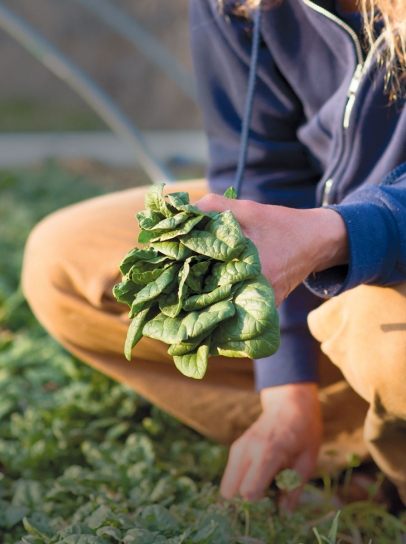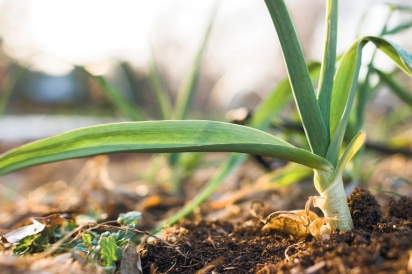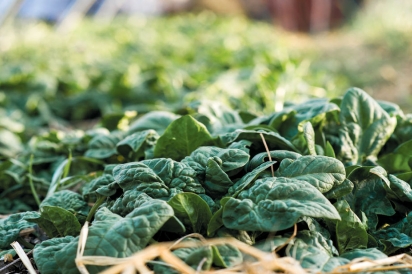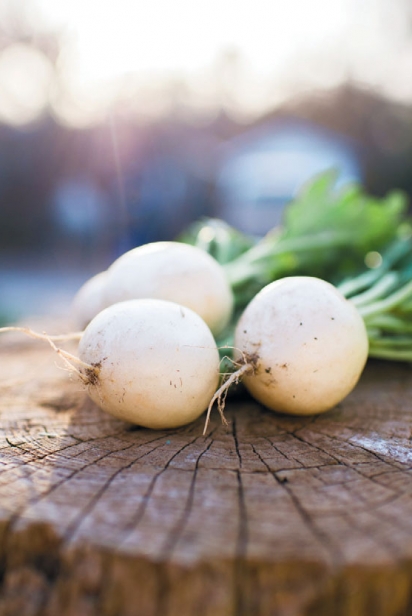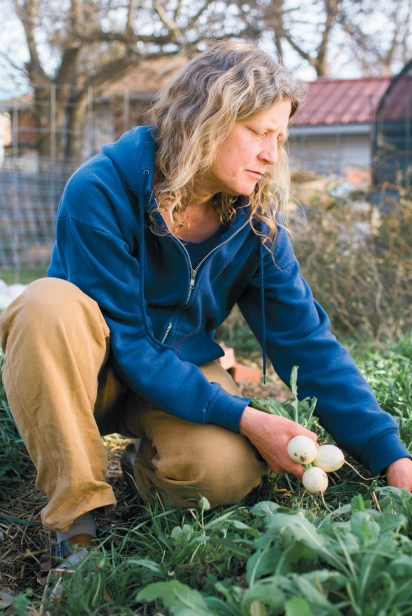Getting Dirty in the City
How One Group is Transforming their Community
It started in the fall of 2010 when a small group of people began looking at a way of expanding neighborhood green space to grow food and practice environmental stewardship. This led to the development of an urban teaching farm for people in their community called CommonWealth Urban Farms. By April of 2011 they already had enough product to begin the first season of their CSA (Community Supported Agriculture).
What began on a side lot has quickly expanded to a much larger space, as they have recently acquired an attached lot; unfortunately, there’s a problem—the soil is not safe for growing food because of lead toxins. Even before planting food for consumption on this new lot, they extract the lead from the soil. The method they’ve turned to is a prettier one—using sunflowers, which can pull the lead out of the soil, distributing it throughout the plant so when the flowers are removed, the lead will be gone too. Growing mushrooms on woodchips is another solution that works similarly, transforming the lead into a non-hazardous substance—CommonWealth Urban Farms will be integrating this method as well.
“Toxicity in soil is a really common problem but most people don't know enough to know it’s something they should be concerned about,” said Woods. She’s interested in using as many practical and accessible solutions as possible, like the sunflowers and mushrooms methods, to create spaces and grow food that even the most casual gardener can use in their own gardens.
“Just growing a little bit of your own food is a transformative experience,” said Woods. “For kids who don't have any idea where a carrot comes from, the first time they pull a carrot out of the ground is magic. It's stunning.”
And growing carrots is exactly what they are doing, as well as radishes, kale, corn, garlic, eggplant, sweet potatoes and many more, all sustainably and chemicalfree.
“If you want to eat good food, growing your own is the way to do it,” said Woods. “Since we tasted our own corn-on-the-cob, I haven’t bought it from the grocery store since—I now feel like I know what it is ‘supposed’ to taste like, and it’s so good!”
Yet during our interview, the garden looked to be lying very dormant (at least to this black thumb), but as Woods began explaining the green sprouts and shoots protruding from the very cold dirt it was clear that CommonWealth does not take winter off. She explained that the majority of what was visible are “cover crops” and they serve a very specific purpose to their garden.
“The winter rye has hundreds of miles of tiny root hairs, which help break up clay soil,” said Woods. She went on to say that the legumes, like Crimson Clover and Austrian Winter Peas, draw free nitrogen from the air and deposit it in the roots, so once the roots decay nitrogen will be distributed into the soil, making it unnecessary to add fertilizer to future plantings.
Sustainability at its finest.
For those interested in community gardening, community members may volunteer for CommonWealth and donate time planting, composting, weeding and anything else CommonWealth needs. In addition to this volunteer effort they also offer a weekly gardening school on Saturday mornings.
“It is meant to be a hands-on, very practical approach to gardening.”
They walk gardening school students through their basic process every week. One week might be the perfect time to plant broccoli, making planting and maintaining broccoli the focus of class (even sending you home with broccoli seedlings). Classes will be $10 each or $200 for an entire year of classes, or volunteering two hours on Saturday morning will earn you a spot for free.
“Our conventional agriculture system is profoundly unsustainable. We cannot keep eating and growing our food this way. We can’t do it. We have to find another way to grow food and feed ourselves,” said Woods. “Part of what we are trying to do at CommonWealth is to be a model for one of the alternatives.”
For more information about CommonWealth visit: commonwealthurbanfarms.com.


